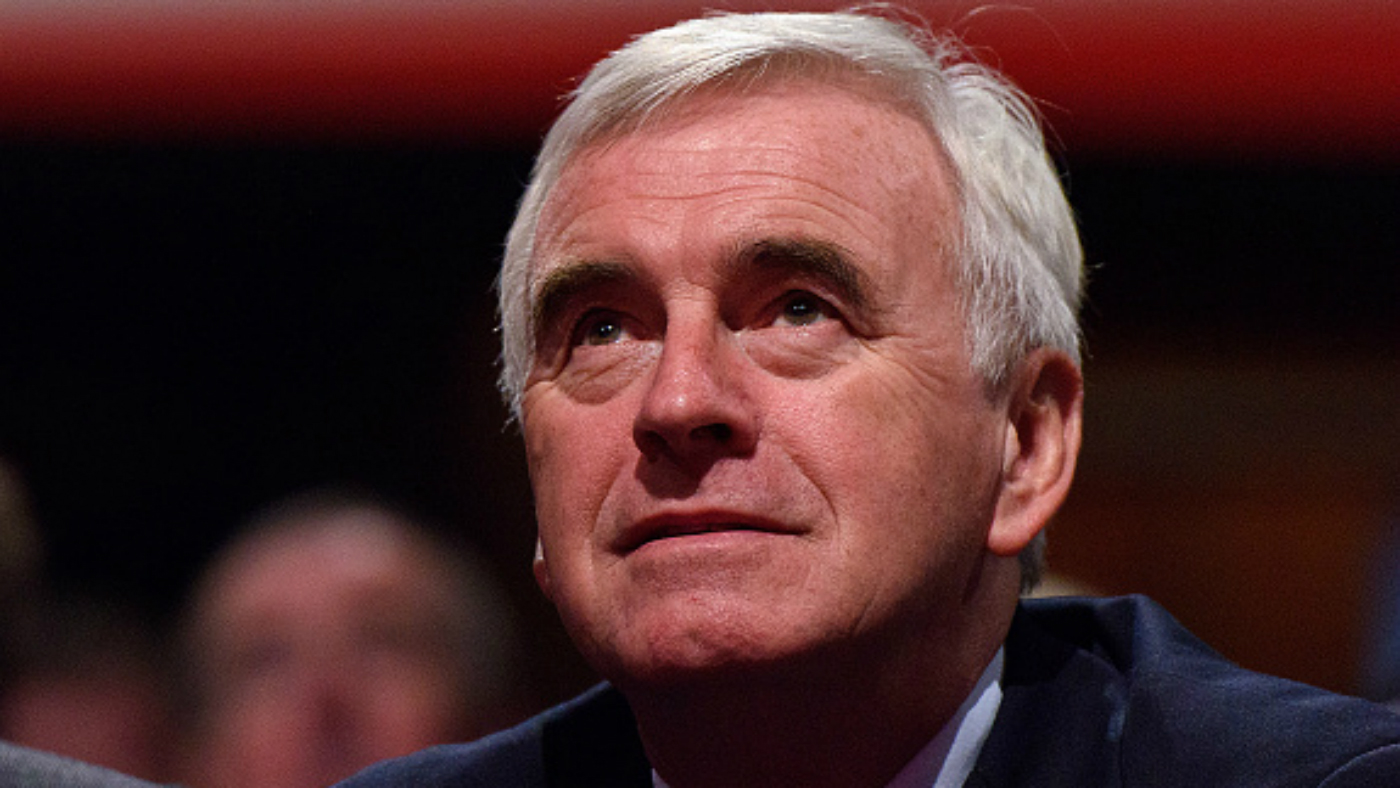Labour says 'Robin Hood tax' would raise £26bn
Shadow chancellor John McDonnell says new levy would help NHS, but critics warn it could hurt pensioners and cost jobs

A free daily email with the biggest news stories of the day – and the best features from TheWeek.com
You are now subscribed
Your newsletter sign-up was successful
Labour is continuing to clarify how it will fund tens of billions of pounds of spending pledges if it wins the election, confirming today its support for a so-called "Robin Hood tax".
Shadow chancellor John McDonnell says the tax would raise around £5bn a year and £26bn in total over the next parliament.
This would help to pay for a host of new commitments, including today's announcement that the party would spend another £37bn on the NHS over the course of the next five years, including on IT system upgrades.
The Week
Escape your echo chamber. Get the facts behind the news, plus analysis from multiple perspectives.

Sign up for The Week's Free Newsletters
From our morning news briefing to a weekly Good News Newsletter, get the best of The Week delivered directly to your inbox.
From our morning news briefing to a weekly Good News Newsletter, get the best of The Week delivered directly to your inbox.
The concept of a financial transactions tax evolved out of ideas for a tax on short-term currency trades in the 1970s. It has gained popularity since the financial crisis.
A popular campaign for a Robin Hood tax would see a tiny levy of 0.05 per cent applied to all transactions to raise "£250bn a year globally".
Labour's tax is higher at 0.5 per cent and is effectively an extension of a stamp duty that already applies to purchases of listed company shares.
"Labour's estimate of £4.7bn in revenue for 2016/17 is predicated on a tax rate of 0.2 per cent of the value of transactions for banks, hedge funds and other financial companies, and 0.5 per cent for non-financial businesses," says the Financial Times.
A free daily email with the biggest news stories of the day – and the best features from TheWeek.com
McDonnell said: "We bailed out the City 10 years ago when the crash came, we poured hundreds of billions of pounds into it. Since then £100bn has been given out in bonuses in the City.
"So we are asking for a small contribution...to fund our public services."
Several think-tanks have "warned that pensioners and savers with investments would be hit as much as bankers, while the public would face higher interest rates as a result," says the Daily Telegraph.
Julian Jessop, chief economist at the Institute of Economic Affairs, says: "The increased costs would inevitably be passed on to customers, including small investors, in the form of higher charges, and to borrowers in the form of higher interest rates.
"Non-financial firms will find it more expensive to raise capital and manage risk, which will undermine the economy further.
"In reality, it's always ordinary people who ultimately pay, including consumers and workers. Sherwood Forest wasn't made of magic money trees either.”
Labour's own Sadiq Khan, who is the mayor of London where most of the affected UK financial transactions would take place, has previously called such a levy "madness".
The BBC says concern over the tax would add to worries over a loss of business from the City in the wake of Brexit.
-
 The year’s ‘it’ vegetable is a versatile, economical wonder
The year’s ‘it’ vegetable is a versatile, economical wonderthe week recommends How to think about thinking about cabbage
-
 Moltbook: The AI-only social network
Moltbook: The AI-only social networkFeature Bots interact on Moltbook like humans use Reddit
-
 Judge orders Washington slavery exhibit restored
Judge orders Washington slavery exhibit restoredSpeed Read The Trump administration took down displays about slavery at the President’s House Site in Philadelphia
-
 Labour shortages: the ‘most urgent problem’ facing the UK economy right now
Labour shortages: the ‘most urgent problem’ facing the UK economy right nowSpeed Read Britain is currently in the grip of an ‘employment crisis’
-
 Will the energy war hurt Europe more than Russia?
Will the energy war hurt Europe more than Russia?Speed Read European Commission proposes a total ban on Russian oil
-
 Will Elon Musk manage to take over Twitter?
Will Elon Musk manage to take over Twitter?Speed Read The world’s richest man has launched a hostile takeover bid worth $43bn
-
 Shoppers urged not to buy into dodgy Black Friday deals
Shoppers urged not to buy into dodgy Black Friday dealsSpeed Read Consumer watchdog says better prices can be had on most of the so-called bargain offers
-
 Ryanair: readying for departure from London
Ryanair: readying for departure from LondonSpeed Read Plans to delist Ryanair from the London Stock Exchange could spell ‘another blow’ to the ‘dwindling’ London market
-
 Out of fashion: Asos ‘curse’ has struck again
Out of fashion: Asos ‘curse’ has struck againSpeed Read Share price tumbles following the departure of CEO Nick Beighton
-
 Universal Music’s blockbuster listing: don’t stop me now…
Universal Music’s blockbuster listing: don’t stop me now…Speed Read Investors are betting heavily that the ‘boom in music streaming’, which has transformed Universal’s fortunes, ‘still has a long way to go’
-
 EasyJet/Wizz: battle for air supremacy
EasyJet/Wizz: battle for air supremacySpeed Read ‘Wizz’s cheeky takeover bid will have come as a blow to the corporate ego’